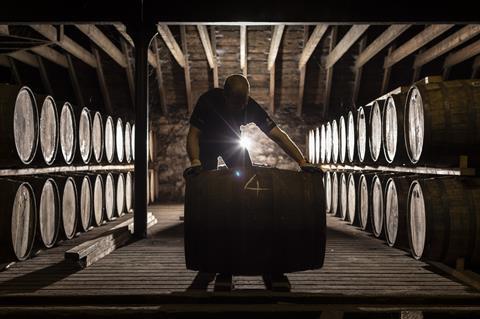
Beam Suntory has claimed to have successfully proven hydrogen is a viable fuel source for distilling whisky.
Working alongside hydrogen innovation business Supercritical Solutions, the Jim Beam whiskey and Roku gin maker said it had completed the world-first successful trial of a 100% hydrogen-fuelled distillation.
It used the energy source to directly heat the still used to produce whisky at its Yamazaki distillery in Japan.
The process of ‘direct-firing’ – as opposed to using indirect heating via steam coils – offered “the potential to cut carbon emissions by up to 100% if using green hydrogen”, Beam Suntory said. It claimed this could render the entire process of distilling spirit as net zero.
Part of the distilled spirit will now be ‘casked’ in Scotland at Beam Suntory’s Glen Garioch distillery, where it will be quality assessed as it matures.
Beam Suntory added it believed direct-firing could “enhance spirit quality and depth of character” through the associated maillard reactions it produced.
The trial was part of the WhiskHy project, which in 2021 received funding from the UK government to carry out feasibility studies for “green hydrogen-based decarbonisation technology” at Beam Suntory-owned distilleries worldwide.
The funding was awarded through the government’s ‘green distilleries’ competition, which forms part of the Department for Energy Security & Net Zero’s ‘net zero innovation portfolio’.
Beam Suntory was “intent on pushing the boundaries of green innovation”, said the company’s head of distilling and environment Alistair Longwell.
“We have an ambition to achieve net zero emissions across our entire value chain by 2040, and it is through unique collaborative projects such as WhiskHy that we will get there,” he added.
Martin Callanan, minister for energy efficiency and green finance, said the development had “the potential to kickstart a new clean green whisky industry”.
“By backing the project with £2.9m in government support, we are helping businesses seize the opportunities of hydrogen and cut their emissions on the journey to net zero,” he added.



















No comments yet